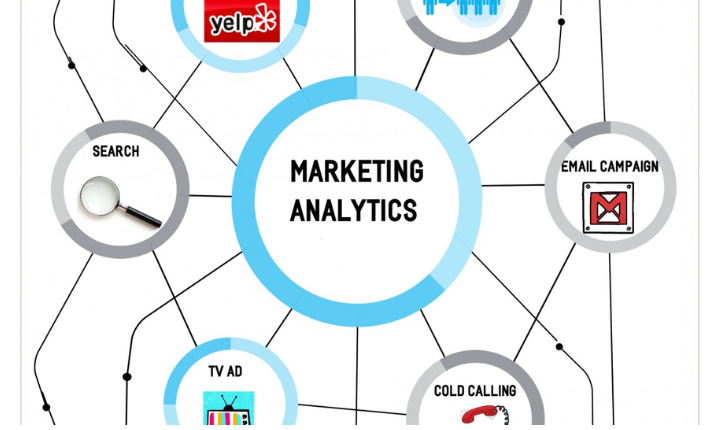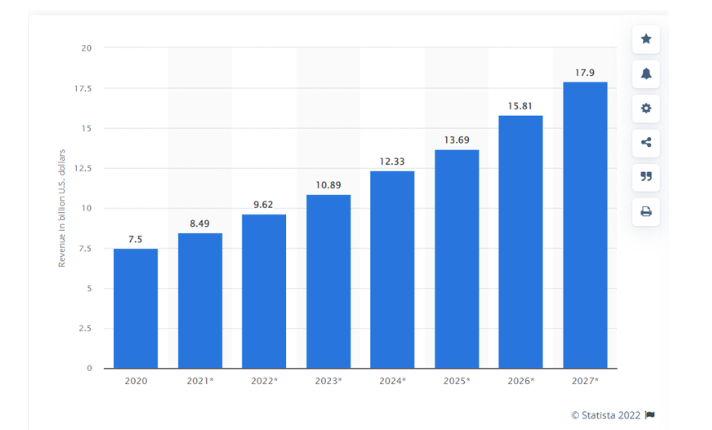
Measuring the effectiveness of your digital marketing efforts is crucial. Regardless of whether or not you’re running a business or managing an organization. You need to know. How well you are doing if you’re trying to attract new clients, get more referrals back to you, and/or make them interested in what your company has to offer. However, it can be tricky with so many different metrics to track — some of which are pretty simple. But some require more effort to get right. For example, let’s say that one of your sales goals is increasing online traffic to your website from local search engines like Google Maps. In this case, you may have a handful of variables you can measure, including clicks per day and average time spent on your site. But other times, measuring just one action can make all the difference.

Let’s consider two common scenarios.
If you sell products directly to consumers. Then your main goal should be getting as many people to turn into customers as possible. That way, you can build loyalty among their target audience (and hopefully turn them into repeat buyers). As soon as possible (instead of waiting around for them to come along). This might mean hiring additional employees who understand the importance of word-of-mouth marketing for building customer relationships early on, reaching out to current customers and asking about their experiences with your products and offerings (which are also great for retention purposes), etc. As long as your efforts continue to resonate with them, you’ll do very well in building trust and influencing decision-making.
If you manage inventory on behalf of one or more other companies, then there’s no real point in being able to monitor everything they’re doing. External influences could affect your business; like supply chains and global events, political unrest, and economic cycles. Even though these things could happen to any number of businesses, in most cases, we still focus our efforts on those aspects of our environment that we control — either by location, technology, or the like. Some industries are prone to weather storms more easily than others, so depending on where you operate, a stormy geopolitical situation could affect your business more than it would your competitors.
Similarly, for many large corporations in retail and consumer goods industries, sudden changes in raw material prices could trigger serious problems in stock levels and pricing, causing the entire chain to incur significant losses. These are just a couple of examples of the myriad factors that can impact your business’s performance, and the best strategy is always to stay ahead of them. And remember, the more information you have regarding these matters, the better prepared you’ll be to respond to them effectively.
Content of digital marketing is a powerful tool for promoting brands and helping drive conversions on social media, email, landing pages, and more — as far as marketing is concerned. At this point, the content of digital marketing analytics starts becoming extremely important. It’s easy to forget that this type of content marketing is a complex part of overall marketing strategies. By monitoring your content marketing campaigns, and comparing them to the ones you used in competition, you’ll be able to make comparisons and see what works and doesn’t work consistently and accurately for you. Most importantly, by understanding who your ideal reader is and identifying where they spend the majority of their time, you’ll be able to optimize and streamline your content marketing to fit their interests and behavior. We’ve covered exactly why we believe you should invest in the content of digital marketing metrics earlier, so check those out.

Analyzing social media engagement across multiple platforms (even one or more channels) can provide you with valuable insight into your marketing campaign, allowing you to adjust accordingly. Whether it’s Facebook Ads Manager, Instagram Insights Tool, or Twitter Amplification Service, tracking social media activity helps you build solid plans and improve campaign performance based on what’s working versus what isn’t on your specific channel. Keep in mind that social media analytics aren’t just applicable to B2B marketers — anyone with active followers who also uses their accounts (whether through a newsletter subscription, following an existing account on Twitter, reposting posts on LinkedIn or even sending them direct messages!) Can benefit from creating custom reports based on certain criteria within each social platform.
Once you know. Who your target audience is and the content types that they engage with (which can vary significantly depending on the platform). You can tailor future tactics to suit their preferences and build stronger relationships with them.
Email marketing campaigns have become hugely useful tools for driving traffic towards particular areas on the internet users. While this kind of marketing channel isn’t entirely dependent on the quality of your content. It nevertheless offers excellent opportunities to build trust and influence your readership. What’s more, emails are also relatively inexpensive to produce; according to Statista, “A single page load only costs $1.79”.
Additionally, there is typically little incentive for spamming. And less of an opportunity cost to reach out to potential customers. It’s often preferable to send too few emails to avoid losing valuable leads. Also, remember that emails can sometimes take longer to open than other forms of content. Particularly since a person’s inbox can contain hundreds or thousands of items. Therefore, it’s important to make sure that you allocate enough time for your emails. And ensure that they get opened, read, and, hopefully, click on!

One of the biggest benefits of having organic search engine optimization (SEO). And Search Engine Marketing (SEM) checklists are that it gives you complete access to your SEO campaign’s progress. When done properly, both techniques offer immense value — to marketers. As we’ve already discussed previously. It’s extremely hard to maintain consistent results. When we’re constantly dealing with other sources of influence (like keywords, backlinks, and reputation). With SEM and other SEO checklists. However, you can look across every aspect of your campaign’s performance without affecting your SEO strategy in any way. Plus, with proper planning, you can identify which elements of your SEO campaign. Were effective and which ones ended up harming the results? After all, it gives you a clear picture of where improvement is needed. Which optimizations need to be made to maximize outcomes?